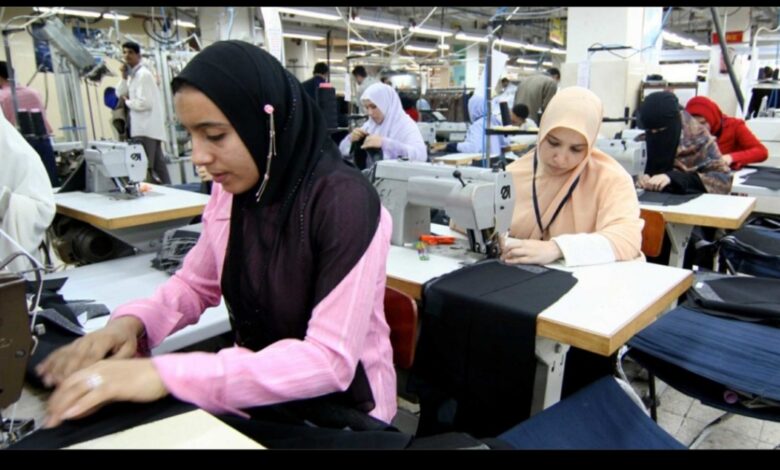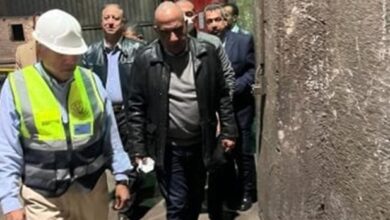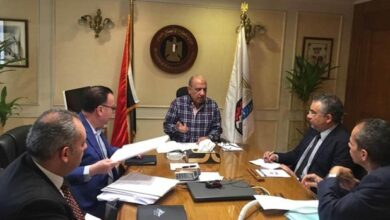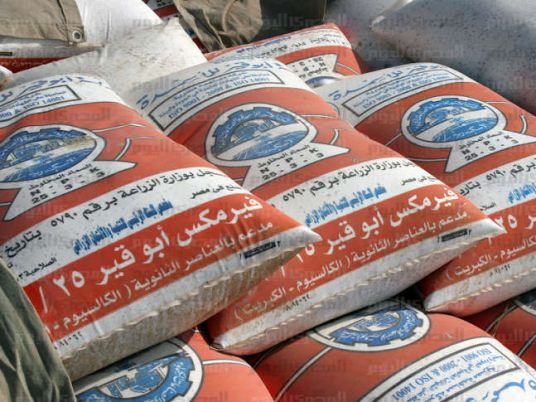
Minister of Public Business Sector Mahmoud Essmat has emphasized the necessity of integration with the private sector to achieve the goal of massive investments, increase exports, reduce imports, and provide high-quality industry inputs to private companies.
The ministry, in a statement on Sunday, explained that this came during a tour by the minister of the development project at the complex of the Egyptian Spinning and Weaving Company and Dyeing of El-Beida in Kafr al-Dawar City, Beheira Governorate, as part of the strategy to address implementation obstacles on the ground to prevent non-compliance with the specified timelines for project completion at all sites.
During the visit, the minister met with project consultants and executing contractors, in the presence of Engineer Ahmed Shaker, the Executive Managing Director of the Holding Company for Cotton, Spinning, and Weaving, Engineer Mohamed al-Khudrawi, the Chairman of the Egyptian Spinning and Weaving Company and Dyeing of El-Beida in Kafr al-Dawar, and Mohamed Daabis, the Minister’s Assistant for Follow-up, and Essam Jalal – National Company for General Contracting and Supplies.
They reviewed the progress of work in implementing the Industrial Castle project at the El-Beida site, which includes six integrated factories for spinning and weaving on an area of 337,000 square meters, as well as the completion timelines for the construction works of the factories and service buildings and the installation schedules of new machines, ensuring adherence to schedules to prevent any delays coinciding with equipment delivery schedules.
Essmat reviewed the implementation stages of the spinning factory on an area of 36,250 square meters with 88,128 spindles and a production capacity of 9,513 tons annually, and the weaving factory on an area of 20,900 square meters, which includes preparation factories 1 and 2 with 384 weaving looms, in addition to the dyeing, bleaching, printing, and finishing factory on an area of 53,000 square meters with a production capacity of 54 million meters annually, and the garment factory on an area of 1,500 square meters with a production capacity of 7.5 million pieces annually.
He directed the need to intensify work and utilize energies to complete the implementation of the spinning factory in the first place, especially since the remaining factories rely on its product.
The Minister of the Public Business Sector stressed the need to accelerate the pace of work on the project and complete the factories according to the specified timetable, starting with the spinning factory, which represents the first manufacturing stages within the complex. He explained that the marketing plan and sales policy rely on cooperation with industry partners from the private sector and providing them with the necessary products, which represent their production requirements and providing opportunities for textile manufacturers to exploit additional capacities, especially in finishing and dyeing factories and others.
Essmat also emphasized the importance of implementing training and rehabilitation programs for workers in cooperation with the training center at the Egyptian Spinning and Weaving Company in Mahalla al-Kubra, and the necessity of raising awareness among workers about the importance of the giant project for industry development, especially the Industrial Castle in Kafr al-Dawar.




